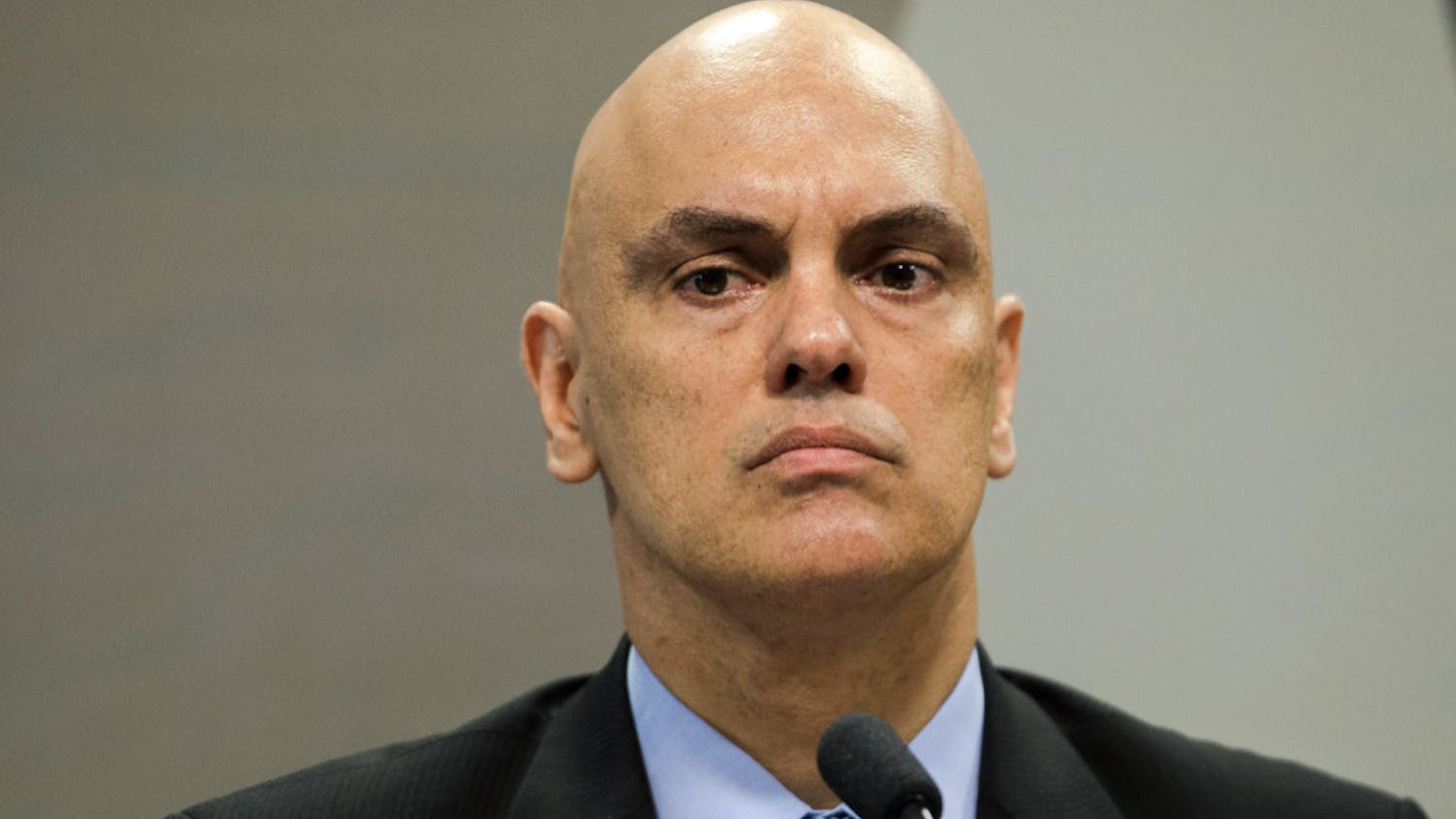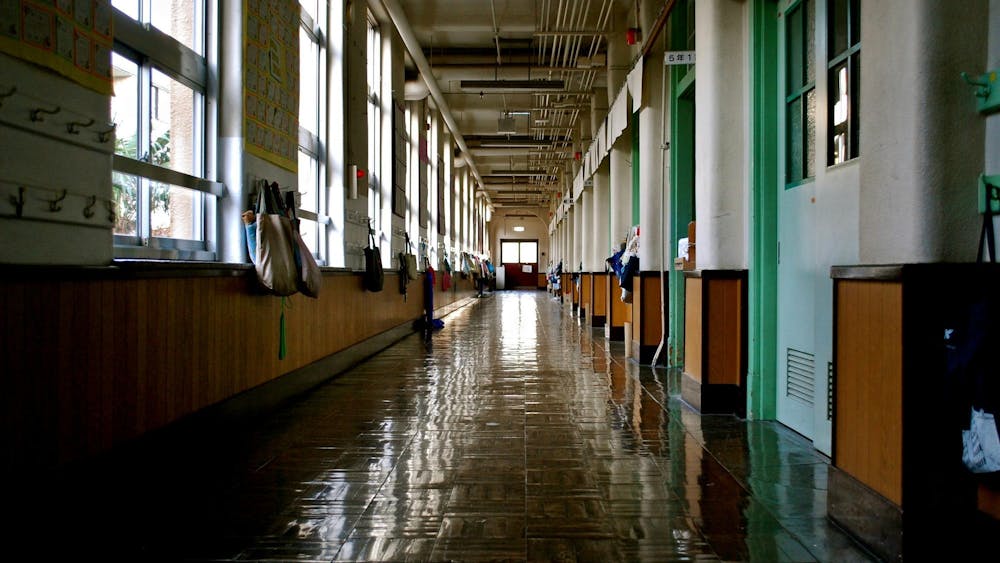“Is it not like fiddling while Rome burns?” C.S. Lewis asked Oxford students in a sermon on Oct. 22, 1939. Poland had already surrendered, and Germany began to attack Britain just the past Monday, but classes in that quaint college town drudged along unfazed. Was it really right to go on solving silly word problems and discussing Darwin and Dostoevsky “when the lives of [their] friends and the liberties of Europe [hung] in the balance?” Why were they — and why are we — still doing this? In a global pandemic, should we be taking classes at all?
It’s very tempting to conclude that we must step away from our arduous work to give everything we’ve got to slowing the pandemic. But to seriously answer this question, we must first interact with the deeper philosophical issues that lie at its heart, namely “what should we be doing with our time” and “what should we be living for.” This makes the question of education during the coronavirus even more disquieting because it makes the action we don’t pick seem insignificant, an unacceptable conclusion either way.
But that’s a false dilemma. As Lewis points out, there is another group — things that are “not worth living for” but “worth dying for,” such as, he posits, one’s country or “[t]he rescue of drowning men.” Although these categories are definitely limited and measure only those things of very high value, one cannot help but notice the core similarity between the latter example and stopping instruction altogether for the pandemic: saving lives.
I do not want to diminish just how much of a moral good saving lives are, but I would like to suggest that, while perhaps worth dying for, saving lives by itself is not and cannot be something worth living for. Surviving to live longer, or helping others survive so that they can live longer, is not itself an end, but only a means to that end which is the meaning of life. In other words, we don’t save lives simply to help them live longer but because there is some intrinsic meaning and purpose that can be experienced, fulfilled and enjoyed by living longer. Saving lives — those of others as well as our own — cannot, then, be the primary and true objective of our lives. A life entirely and exclusively devoted to this in the most literal sense, then, misses out on something much bigger — the thing which makes those lives worth saving.
Ok, but that doesn’t answer the question. After all, just how important is our own education anyway? Unlike saving lives, it certainly doesn’t seem like something to die for (how would that make sense exactly?), but maybe it’s still something, curiously, worth living for but not dying for. This category, though, is faulty. To truly live for something, in its most ultimate and pure sense, requires us to be willing to die for it, too, because to live without that thing which gives life meaning is, in a way, to cease truly living. Phrased differently, meaning — the thing which we must live for — is what gives our existence value and purpose and what keeps us going, striving and, well, living. We cannot truly live, then, without it, and it must be exceedingly more bearable to die with that meaning intact than to live the next 20 years, five years or even a week without it. Such an existence — one where we are deprived of all meaning and something worth living for — is far worse than death and can only be accurately described as one thing: hell.
That is an exaggeration. Certainly, it is not actually hell. But it is a prologue to it, or perhaps even a very small taste of it, and such a distinction deserves no sigh of relief. Hell is such a terrifying place not because of any physical pain its inhabitants might experience there but because they will lack all connection with the source of all meaning, purpose, love and peace. If God’s being, presence and relationship with us is the only thing that can make life meaningful in any ultimate sense and give us something worth living for, as I believe it is, then we find genuine meaning and flourishing only to the extent that He is the center of our lives. The more our relationship with God becomes what supremely matters and is the purpose that permeates all we do and think, the closer we get to understanding what heaven is like.
Conversely, the more we deny God this role in our lives, the more we make things not worth living for (anything that is not God) the meaning of our lives, the more distant we put ourselves from God and, consequently, true life and ultimate meaning. When Jesus said He was “the resurrection and the life” (John 11:25), he was not being glib. He was giving us a very real statement about reality, that He is “the Author of life” (Acts 3:15) and it is through Him that we “may have life and have it abundantly” (John 10:10). This puts Jesus’ question — “… what good will it be for someone to gain the whole world, yet forfeit their soul?” (Matthew 16:26) — into a whole new perspective.
Facing a meaning that is more important than anything else we do or even our earthly existence itself, everything must become an afterthought in comparison. The question of education during a pandemic is a good one and demands a thoughtful answer, but it also suggests a troubling lack of perspective. After all, “to a Christian,” to return to the opening illustration, “the true tragedy of Nero must not be that he fiddled while the city was on fire but that he fiddled on the brink of hell.” “To admit that we can retain our interest in learning under the shadow of these eternal issues,” Lewis says, “but not under the shadow of a European war,” or a pandemic, “would be to admit that our ears are closed to the voice of reason and very wide open to the voice of our nerves and our mass emotions.” That’s a sobering thought.
Contemplating the end is, yes, unsettling, but it’s the only way, as Kierkegaard suggests, to understand who we are. And our answer, whether we are conscious of it or not, shapes our entire philosophy and everything we think and do. If there is no afterlife, no accountability for our actions after the grave and no personal God, then what we do here, even our very existence, doesn’t, in the final analysis, matter at all. But if these things are real, then there is meaning, there is purpose, there is justice, there is hope, there is victory, there is love that conquers death, there is something worth living for. What could matter more?
Andrew Sveda is a sophomore at Notre Dame from Pittsburgh majoring in Political Science. In his free time, he enjoys writing (obviously), reading and playing the piano. He can be reached at asveda@nd.edu or @SvedaAndrew on Twitter.













